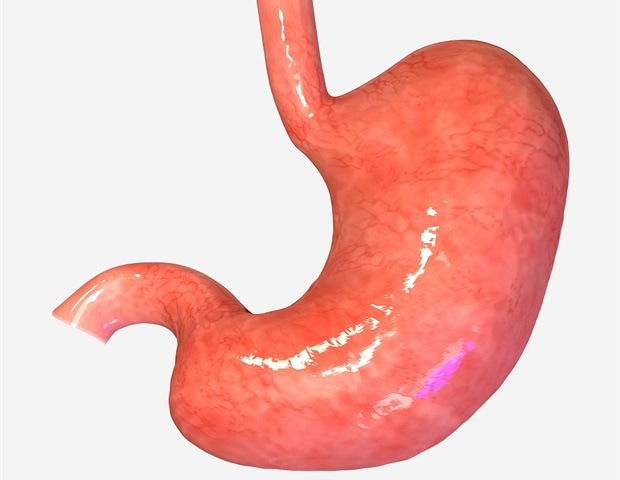Health
New Findings Link Molecular Signatures to Gastric Cancer Progression

A significant study published in Cancer Biology & Medicine has uncovered critical molecular signatures that map the development of gastric cancer, a disease often linked to infection by Helicobacter pylori. Researchers from Peking University Cancer Hospital & Institute and other collaborating institutions conducted comprehensive analyses on human gastric tissues, revealing how this infection leads to cancer progression.
Gastric cancer typically evolves through several stages, starting with superficial gastritis and transitioning through chronic atrophic gastritis, intestinal metaplasia, and precancerous lesions before manifesting as malignancy. Approximately 90% of non-cardia gastric cancers are associated with H. pylori infection, which acts as a catalyst in this process. While current eradication therapies can reduce cancer risk, the molecular mechanisms linking the infection to cancer remain inadequately understood.
To address this gap, the research team applied large-scale proteomic profiling and single-cell transcriptomic sequencing to gastric tissue samples from 166 individuals in Linqu, a region known for its high gastric cancer risk, and 99 patients in Beijing. By analyzing over 4,200 proteins, the researchers identified 28 key proteins that serve as markers of H. pylori infection and gastric cancer. Among these, proteins such as OLFM4 and ENO1 were found to be up-regulated, while GSN and IGFBP2 were down-regulated.
The study also utilized single-cell RNA sequencing, examining 135,000 gastric cells to determine how gene expression shifts at various stages of disease progression. The findings highlighted a clear trajectory from normal epithelium to intestinal metaplasia and ultimately to malignant cells.
In a notable development, the research team created a 15-protein tissue panel that effectively stratified patients based on their risk of developing gastric cancer. Those identified in the highest risk quartile exhibited more than a seven-fold increase in the likelihood of progressing to neoplasia. Further validating their findings, the team established a four-protein circulating panel (comprising OLFM4, ENO1, GSN, and IGFBP2) using data from the UK Biobank, which included 48,529 participants. Individuals in the high-risk group were found to be nearly four times more likely to develop gastric cancer compared to their lower-risk counterparts.
These results underscore a reproducible molecular pathway that may drive infection-related gastric cancer. As explained by Dr. Wenqing Li, the senior author of the study:
“By integrating tissue proteomics, single-cell sequencing, and long-term follow-up data, we have been able to identify consistent protein markers that map the stepwise development of gastric cancer.”
The implications of this research are profound, particularly in the context of prevention strategies. Currently, endoscopic screening for gastric cancer is invasive and expensive, which limits its accessibility, especially in resource-limited settings. The identification of non-invasive blood-based markers could facilitate large-scale screening efforts, allowing healthcare providers to identify individuals requiring urgent follow-up.
Moreover, the molecular signatures discovered in this study not only enhance the understanding of how H. pylori infection alters the gastric environment but also offer potential targets for new therapeutic interventions. As these biomarkers undergo further validation, they may pave the way for precision medicine approaches that can intercept gastric cancer at its earliest stages, ultimately improving patient outcomes.
This groundbreaking research represents a significant step forward in understanding gastric cancer’s underlying biology and developing effective prevention strategies. As the scientific community continues to explore these findings, the potential for transforming gastric cancer management becomes increasingly tangible.
-

 Health3 months ago
Health3 months agoNeurologist Warns Excessive Use of Supplements Can Harm Brain
-

 Health3 months ago
Health3 months agoFiona Phillips’ Husband Shares Heartfelt Update on Her Alzheimer’s Journey
-

 Science1 month ago
Science1 month agoBrian Cox Addresses Claims of Alien Probe in 3I/ATLAS Discovery
-

 Science1 month ago
Science1 month agoNASA Investigates Unusual Comet 3I/ATLAS; New Findings Emerge
-

 Science4 weeks ago
Science4 weeks agoScientists Examine 3I/ATLAS: Alien Artifact or Cosmic Oddity?
-

 Entertainment4 months ago
Entertainment4 months agoKerry Katona Discusses Future Baby Plans and Brian McFadden’s Wedding
-

 Science4 weeks ago
Science4 weeks agoNASA Investigates Speedy Object 3I/ATLAS, Sparking Speculation
-

 Entertainment4 months ago
Entertainment4 months agoEmmerdale Faces Tension as Dylan and April’s Lives Hang in the Balance
-

 World3 months ago
World3 months agoCole Palmer’s Cryptic Message to Kobbie Mainoo Following Loan Talks
-

 Science4 weeks ago
Science4 weeks agoNASA Scientists Explore Origins of 3I/ATLAS, a Fast-Moving Visitor
-

 Entertainment4 months ago
Entertainment4 months agoLove Island Star Toni Laite’s Mother Expresses Disappointment Over Coupling Decision
-

 Entertainment3 months ago
Entertainment3 months agoMajor Cast Changes at Coronation Street: Exits and Returns in 2025









